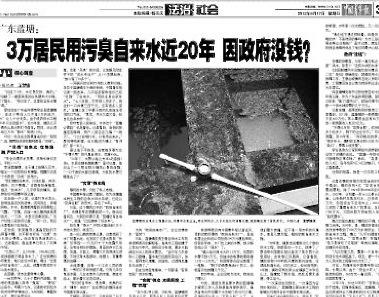[xtypo_dropcap]T[/xtypo_dropcap]hough inflation exists in China, rarely will an official warn the public to expect it to continue.
A member of the Chinese National Development and Reform Commission recently spoke anonymously to domestic media, saying that further interest rate increases will not control inflation so the public must simply be resigned to it, according to Deutsche Welle.
Subsequently, many media outlets, including China’s state-run Xinhua News Agency, reported numerous responses from Internet users. The public decried the NDRC’s warning as illogical.
Wu Qiang, a political science faculty member at Tsinghua University, remarked that a claim by a high-ranking and well-informed official is both a clue to the governmental decision-making process, and a signal intended for the public from the Fifth Plenary Session of the Communist Party’s Central Committee.
A continuous political signal, intent on stability and the suppression of discontent, is being sent: Endure the inflation because there is no way out.
As Markus Taube, director of East Asian Studies at the University of Duisburg-Essen, explained to Deutsche Welle, stability requires that inflation be controlled; had there been no inflation at the end of 1988, the bloodshed during 1989 might have been avoided.
Since then, the Chinese regime has been alert to the threat inflation poses to stability, and is now admitting openly that interest rates cannot stop rising prices. Some bloggers are actively suspecting a replay of the “Jin Yuanjuan” era (a currency that lasted only 10 months and depreciated more than 20,000 times its face value) during the late 1940s.
Taube says that the simplest way to relieve inflation is to allow the renminbi to appreciate, avoiding international currency speculation, encouraging investment into China, and increasing both the circulation of currency and the pressure on inflation.
But the consequence is that currency appreciation will seriously affect export costs and lead to a chain reaction from the public—something the Chinese regime would rather avoid.
In the past, the regime has selectively subsidized some important commodities and this is also an option. However, the overall price increase, particularly of daily consumer products, is too much for the political decision-makers to cope with.
After the comment by the anonymous official from NDRC, Beijing has neither provided an explanation for the inflation, nor repeated the usual suggestions such as “public sentiment must stabilize.”
Wu Qiang indicated that society is under tremendous pressure since the public’s commitment is expected while its participation is refused. “There’s panic and the public can sense it, as they can easily perceive the high inflation. However, the public is often excluded from decision-making. In the end, they’ll be left with constantly changing signals. The public is very concerned with issues such as housing and consumer prices, so the pressure on society and the government is big.”
As for the anonymous NDRC official’s comment, Taube believes that the Chinese regime has a hidden agenda, intending to cope with economic problems in its own way without any input from the public.
With files from Deutsche Welle.



